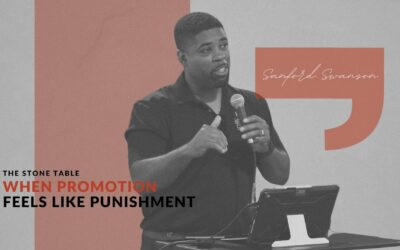Insecure Leadership Part 2: How Not to Be One

In a recent post, I unpacked some thoughts on “The Danger of Insecure Leaders and How Not to Be One.” As a follow-up, I’d like to drill down a bit further into “how not to be one.” Serving under an insecure leader is incredibly difficult. But being an insecure leader is a whole other matter.
Romans 12:2-3 reminds us that we are not to “conform to the pattern of this world, but be transformed by the renewing of your mind. Then you will be able to test and approve what God’s will is – his good, pleasing and perfect will. For by the grace given me I say to every one of you: Do not think of yourself more highly than you ought, but rather think of yourself with sober judgment, in accordance with the faith God has distributed to each of you.” (Emphasis mine).
In JB Phillips’ translation of verse 3, he says, “As your spiritual teacher I give this piece of advice to each one of you. Don’t cherish exaggerated ideas of yourself or your importance, but try to have a sane estimate of your capabilities …” (Emphasis mine).
Insecurity of Inadequacy
By my observation, it seems that the “pattern of this world” (vs 2) is to gravitate toward one of two extremes when it comes to our self-image. Some see themselves as totally inadequate and falling short. They do not feel capable of doing very much for themselves or for Christ’s Kingdom. They fail to realize that “God is working in you, giving you the desire and the power to do what pleases him.” (Philippians 2:13). This group is insecure because they struggle to see the image of God in themselves, and quite frankly, we don’t see them rise to leadership very often.
Legends in Their Own Minds
On the other hand, some people tend toward I call “legends in their own minds” syndrome. They think more highly of themselves than they ought (and frequently more highly than they really are!). With such an inflated attitude, they are likely to be overly confident in themselves and not as dependent as they should be upon the Lord.
Such people forfeit the Holy Spirit’s assistance in their lives, and they frequently leave a negative impression upon others. This group is insecure because they’re afraid that others will see through their bravado and self-confident veneer. They hide their feelings of inadequacy by doubling down on their self-reliance.
Strength in Humility
As Christian leaders, we are called to “have a sane estimate” of our capabilities. We need to objectively know our personal strengths and weaknesses and give both to the Lord. It’s appropriate for us to thank Him for the strengths and abilities He has given to us and offer them up to Him to use as He sees fit.
And we must also be willing to acknowledge our weaknesses that we may especially depend upon the Lord in those areas. Paul said in 2 Corinthians 12:10 “That is why, for Christ’s sake, I delight in weaknesses, in insults, in hardships, in persecutions, in difficulties. For when I am weak, then I am strong.”
Here’s to resting our identity in Jesus and leading well.



